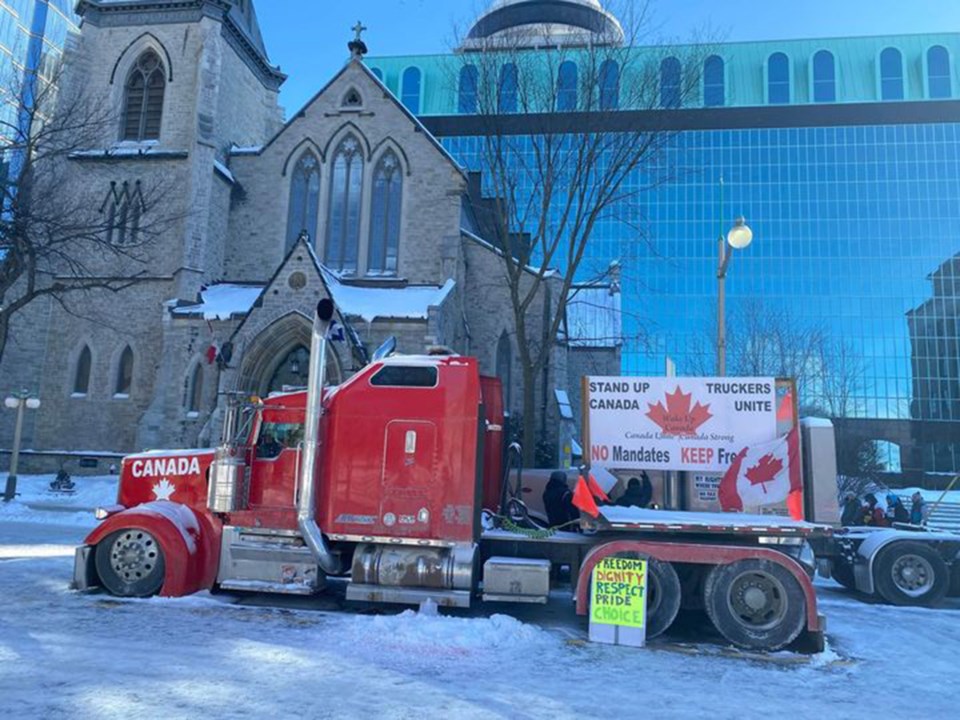OTTAWA – The Liberal government’s use of the Emergencies Act was unreasonable and unconstitutional, the Federal Court ruled on Tuesday.
Prime Minister Justin Trudeau had invoked the Emergencies Act on Feb. 14, 2022, to end the Freedom Convoy protest in Ottawa, which was started by truckers. This allowed the federal government to freeze bank accounts of protesters, arrest people, and force tow truck drivers to tow vehicles.
“I conclude that there was no national emergency justifying the invocation of the Emergencies Act and the decision to do so was therefore unreasonable and ultra vires,” said Federal Court Justice Richard Mosley in his Jan. 23 written decision.
“I have concluded that the decision to issue the Proclamation does not bear the hallmarks of reasonableness – justification, transparency and intelligibility – and was not justified in relation to the relevant factual and legal constraints that were required to be taken into consideration.”
Minutes after the ruling, Federal Conservative leader Pierre Poilievre posted on social media, “He caused the crisis by dividing people. Then he violated Charter rights to illegally suppress citizens."
Saskatchewan MP Andrew Scheer took to social media after the federal court’s ruling saying, “Federal Court rules Trudeau violated the charter. Emergencies Act unjustified. He froze bank accounts and had protestors trampled. Never again let Trudeau give a lecture about Charter rights.”
In his ruling, Justice Mosley said the Emergencies Act is a tool of last resort.
“The [Government of Canada] cannot invoke the Emergencies Act because it is convenient, or because it may work better than other tools at their disposal or available to the provinces. This does not mean that every tool has to be used and tried to determine that the situation exceeded the capacity or authority of the provinces. And in this instance, the evidence is clear that the majority of the provinces were able to deal with the situation using other federal law, such as the Criminal Code, and their own legislation.
“Political speech is granted the highest level of protection because of its essential role in democratic life," he added.
Justice Mosley went on to say that the federal government’s claim that an emergency “exists throughout Canada,” during the protests was in his view “an overstatement of the situation known to the Government at that time.”
The Canadian Civil Liberties Association, the Canadian Constitution Foundation, and several individuals had filed an application with the federal court for a judicial review of the Liberal government’s use of the EA. The individuals included Vincent Gircys, a retired, decorated member of the Ontario Provincial Police, Edward Cornell, a retired military veteran from New Brunswick, Rev. Harold Ristau from Ontario, and Jeremiah Jost, a contractor and volunteer firefighter from Alberta.
“This is a great victory for democracy, for Charter rights and freedoms, and for the rule of law,” said John Carpay from the Justice Centre, which represented the applicants.
Deputy Prime Minister Chrystia Freeland told reporters that the government will appeal the Federal Court's ruling.
This story by SASKTODAY first published on Jan. 23, 2024.
Don't count on social media to deliver your local news to you. Keep local news a touch away by bookmarking SASKTODAY.ca's homepage at this link.
to bookmark our Crime, Cops and Court section.




